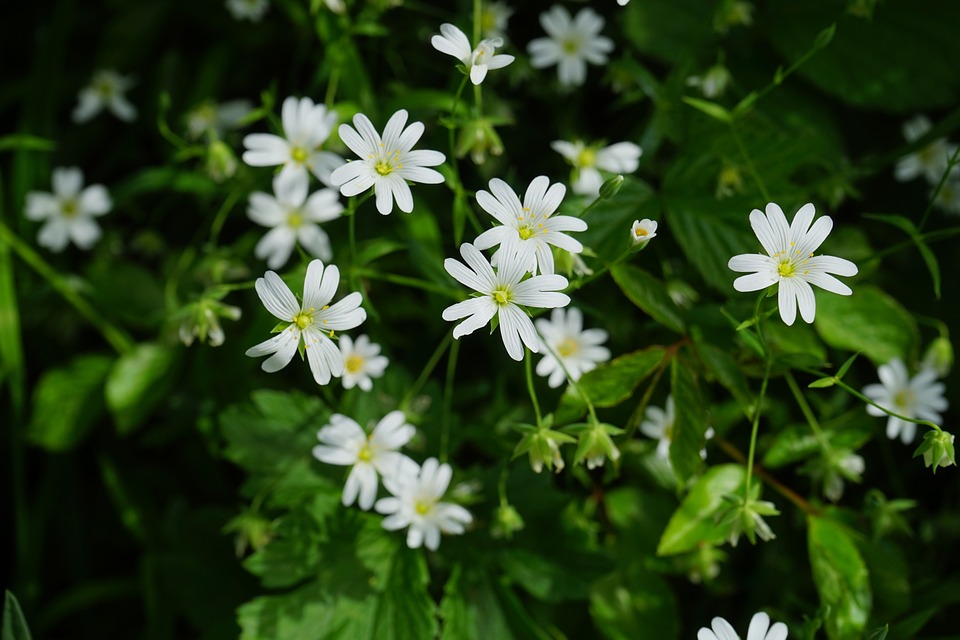Chickweed, also known as the chickenwort and winterweed, is a herb used for culinary purposes. The young shoots are usually used as greens for salad. It is believed to contain a number of health benefits, including, taking care of skin problem such as acne, lipomas, and psoriasis, when applied topically. When ingested, it is believed to help with allergies, asthma, and other respiratory problems. It also eases bowel movements and relieves constipation.
However, it is important to note that all potential medicinal benefits of chickweed are unproven. Therefore, the herb should not be used to diagnose, cure, treat, or inhibit any medical condition. Although early research results on the herb so far suggest that chickweed might be beneficial to our health in many ways, more research needs to be done to substantiate these claims.

The Health Benefits of Chickweed
Nutritious
In addition to being edible, chickweed contains a wide range of nutrients. Some of these nutrients include potassium, zinc, riboflavin, ascorbic acid, rutin, calcium, thiamin, beta-carotene, niacin, oleic-acid, magnesium, and selenium.
Lowers Blood Sugar
When diabetics take the chickweed tincture, it lowers blood sugar. Especially type 2 diabetics who tend to be overweight.
Alleviates Stomach Issues
One other health benefit of chickweed is its ability to alleviate a number of stomach problems. Consuming a chickweed tea or incorporating some chickweed leaves into a salad can help prevent nausea, indigestion, constipation, and heartburn.

Protects the Liver
It has been proven that liver toxins trigger hepatitis. However, when individuals are pre-treated with the water-soluble polysaccharides gotten from the herb, it helps to protect the liver. Since these polysaccharides are water-soluble, they can be brewed into chickweed tea. Soon, with the herb, individuals would show antiviral activity against hepatitis B.
Skin Problems
Chickweed is also used for many skin problems, especially superficial wounds. Simply create a poultice from chickweed and apply it to ulcers, cuts, burns, and boils. It can also be applied to psoriasis and eczema to reduce itching and discomfort.
Antioxidants
Some research reports indicate that chickweed contains antioxidants that are effective in their activity.

Anti-inflammatory
About 13 different alkaloids are present in the chickweed plant. These alkaloids exhibit anti-inflammatory functions that prevent the production of nitric oxide (NO), a regulator of the body’s inflammatory response.
Antiviral
Chickweed contains a special protein that exhibits antiviral activity against HSV-2, the virus responsible for genital herpes.
Antibacterial
Chickweed is made up of a gene known as Stellaria media, a strong aider of antimicrobial peptides. The species is commonly used for preparing chickweed tea. Chickweed seeds also believed to exhibit antibacterial activity as well.

Aids in Weight Loss
Incorporating a daily dosage of chickweed root from the species Stellaria dichotoma into your diet can help you shed a significant amount of weight. This is because the herb has a positive effect on the genes connected to metabolism.
Reduce Allergy Symptoms
According to some studies, the chickweed plant contains some anti-allergic agents. These agents are potentially beneficial for inflammation which, in turn, may help reduce symptoms of rhinitis, and fever.
Side Effects and Precautions
In general, consuming chickweed tea and eating a moderate amount of the leaf in a salad, may not cause significant side effects. However, there are absolutely no human studies on the chickweed plant, and so, it may pose some unknown safety hazards.
It is important to also note that chickweed contains saponins, which may cause diarrhea and vomiting if ingested in large quantities. An overdose of the chickweed plant can also result in heart and kidney failure.
Pregnant women and nursing mothers should avoid using the herb internally. Although there’s no evidence that chickweed tea or the herb is harmful during pregnancy, it is better to avoid using it as no study has been conducted on humans or pregnant animals.




